In the realm of international trade, sea freight has emerged as a pivotal shipping solution, particularly for businesses looking to import goods from China to Venezuela. This method of transportation offers unparalleled cost efficiency, the capacity to accommodate large shipments, and a diverse range of container options tailored to various cargo types. As global trade continues to flourish, understanding the intricacies of sea freight becomes essential for importers seeking to optimize their supply chain. This comprehensive guide delves into the benefits, challenges, and future trends of sea freight logistics, providing valuable insights for businesses navigating the complexities of shipping goods across oceans.
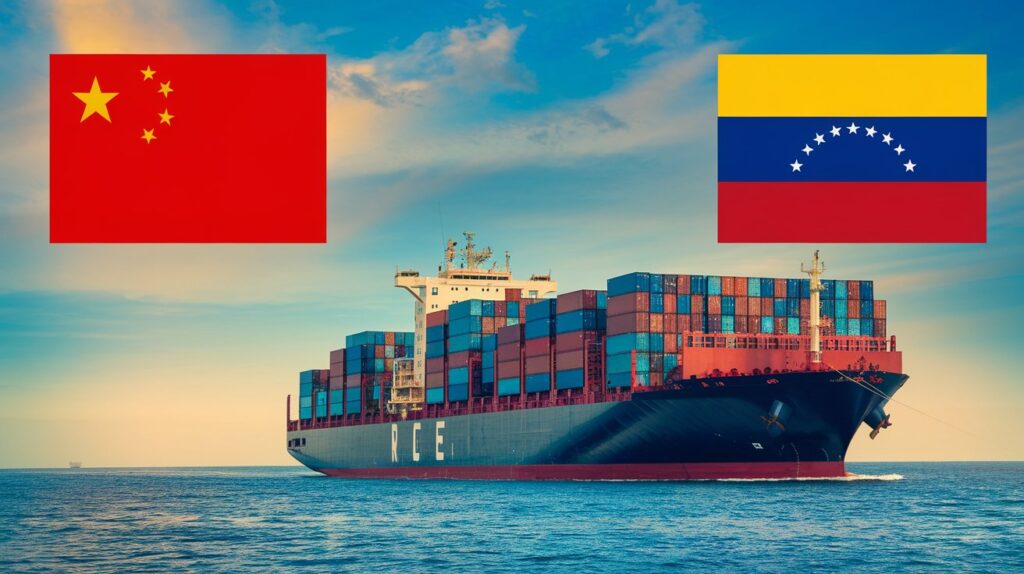
1. Understanding Sea Freight: A Comprehensive Overview
Sea freight refers to the transportation of goods via ocean vessels. This method of shipping is primarily utilized for large quantities of goods, making it a cost-effective option for businesses engaged in international trade. Sea freight can involve various types of vessels, including container ships, bulk carriers, and tankers, each designed to transport specific types of cargo.
The process of sea freight encompasses several stages, including:
- Booking: The shipper arranges for cargo space on a vessel.
- Loading: Goods are loaded onto the ship at the port of departure.
- Transport: The vessel sails towards the destination port, navigating through international waters.
- Unloading: Upon arrival, the cargo is unloaded and transferred to customs for clearance.
- Delivery: The goods are then transported to their final destination, which may involve further transportation methods, such as truck or rail.
In the context of shipping goods from China to Venezuela, sea freight is the preferred choice for many importers due to its ability to accommodate large shipments at competitive rates.
The Importance of Sea Freight in Global Trade
The significance of sea freight in global trade cannot be overstated. As of 2023, approximately 90% of the world’s goods are transported by sea, highlighting its critical role in facilitating international commerce.
Several key factors underscore the importance of sea freight:
| Factor | Description |
|---|---|
| Cost Efficiency | Sea freight is generally more economical than air freight, especially for bulky and heavy cargo. |
| Capacity | Ocean vessels can carry thousands of tons of cargo, making them ideal for large shipments. |
| Environmental Impact | Despite being slower, sea freight tends to have a lower carbon footprint per ton-mile compared to air transport. |
| Trade Accessibility | Sea freight connects countries across continents, enhancing global trade relationships and access to various markets. |
In the case of shipping from China to Venezuela, businesses benefit from the established maritime routes and logistics networks, ensuring timely delivery of goods essential for various industries, including manufacturing, retail, and agriculture.
In addition to these benefits, sea freight involves various shipping methods, such as Full Container Load (FCL) and Less than Container Load (LCL), allowing businesses to choose the option that best fits their needs.
As importers consider the optimal logistics solutions for their operations, Dantful International Logistics stands out as a highly professional, cost-effective, and high-quality one-stop international logistics service provider. With expertise in global shipping, including ocean freight services, Dantful can facilitate seamless shipping from China to Venezuela, ensuring that your cargo arrives safely and on time.
READ MORE:
- Shipping From China to the United States
- Shipping From China TO Canada
- Shipping From China TO Mexico
- Shipping From China to Panama
- Shipping From China to Costa Rica
- Shipping From China to Brazil
- Shipping From China TO Colombia
- Shipping From China to Jamaica
- Shipping From China to Venezuela
2. Advantages of Sea Freight from China to Venezuela
Cost-Effective
One of the most compelling reasons to choose sea freight for shipping from China to Venezuela is its cost-effectiveness. Compared to air freight, sea freight is significantly cheaper, especially for large volumes of goods. With shipping costs often calculated based on the size and weight of the cargo, businesses can save considerably when opting for a maritime route. The lower fuel consumption per ton-mile by ships also contributes to reduced transportation expenses. Utilizing services from Dantful International Logistics, which specializes in ocean freight, allows importers to maximize their shipping budgets while ensuring reliable service.
Accommodates Large Shipments
Sea freight is uniquely suited for accommodating large shipments. Ocean vessels have significant cargo capacity, allowing businesses to transport substantial quantities of goods in a single shipment. For companies importing products from China, this capability is crucial, as it reduces the frequency of shipments and associated handling costs. The ability to ship large quantities also facilitates better inventory management, ensuring that businesses have adequate stock levels to meet demand in Venezuela.
Versatile Container Options
The versatility of container options in sea freight enhances its appeal. Different types of containers are available to accommodate various goods, including standard containers, refrigerated units (for perishable items), and specialized containers for hazardous materials. This flexibility allows businesses to select a shipping solution tailored to their specific needs.
| Container Type | Description |
|---|---|
| Standard Container | Used for general cargo, ideal for most shipping needs. |
| Reefer Container | Temperature-controlled, suitable for perishable goods. |
| Open-top Container | Ideal for oversized cargo that cannot fit into standard containers. |
| Flat Rack Container | Used for heavy equipment and machinery that needs secure transport. |
Choosing a suitable container type ensures that goods are shipped safely and efficiently, minimizing the risk of damage during transit.
Reliable Transit Times
Shipping times are a critical factor for businesses. While sea freight is not as fast as air freight, advancements in shipping logistics and scheduling mean that transit times can be quite reliable. Routes from China to Venezuela can be planned efficiently, with established timelines for departure and arrival. Moreover, by working with a reputable freight forwarder like Dantful, importers can receive updates on shipment status, allowing for better planning and coordination.
Environmentally Friendly
In an era where sustainability is becoming increasingly important, sea freight stands out as an environmentally friendly option. Ocean transportation produces significantly lower carbon emissions per ton of cargo compared to air freight. Ships are designed to transport large quantities of goods with minimal environmental impact, reducing the overall carbon footprint of international logistics. Businesses selecting sea freight can thus align their shipping practices with eco-friendly principles, appealing to environmentally conscious consumers.
Reduced Risk of Damage
The risk of damage to goods during transport is always a concern for importers. Sea freight typically involves more stable conditions than air freight, which can be affected by turbulence and rapid altitude changes. Containers are securely packed and loaded onto vessels, minimizing movement and exposure to harsh conditions. Additionally, a well-established logistics provider like Dantful ensures that cargo is handled with care throughout the shipping process, further enhancing the safety of shipments.
3. The Process of Shipping via Sea Freight
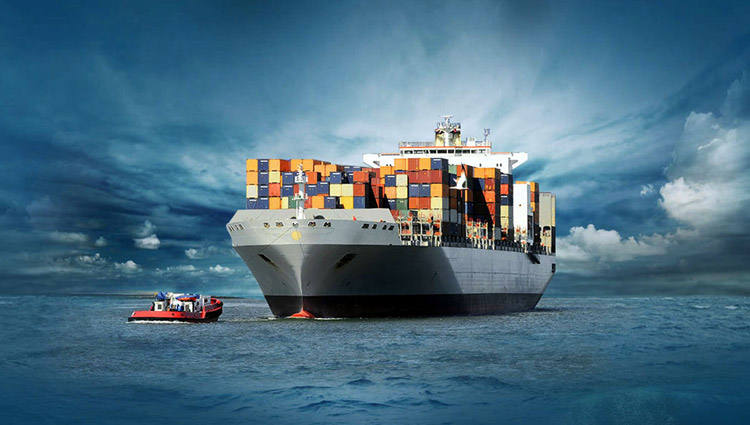
Step-by-Step Guide to Sea Freight Shipping
Understanding the steps involved in sea freight shipping can streamline the process for importers. Below is a comprehensive guide:
-
Consultation with Freight Forwarder: Begin by contacting a freight forwarder such as Dantful to discuss shipping requirements, including cargo type, volume, and destination.
-
Quotation and Booking: Based on the provided information, the freight forwarder will offer a quotation. Once agreed upon, a booking is made for cargo space on a suitable vessel.
-
Preparing Documentation: Importers will need to prepare necessary shipping documents, including the bill of lading, commercial invoice, and packing list. A reliable freight forwarder can assist in ensuring that all paperwork is accurate and compliant with customs regulations.
-
Cargo Collection and Loading: The freight forwarder will arrange for cargo collection from the seller’s location, ensuring proper loading into the designated container.
-
Customs Clearance: Prior to departure, the shipment must clear customs at the origin port. The freight forwarder will handle this process, ensuring all documentation is in order.
-
Transit: The vessel departs for Venezuela, following the planned route. Importers can track the shipment status for real-time updates.
Arrival and Unloading: Upon arrival at the destination port, customs clearance is required again. The freight forwarder will help facilitate this process.
-
Final Delivery: After customs clearance, the cargo can be delivered to its final destination, whether it’s a warehouse or retail location.
Choosing the Right Freight Forwarder
Selecting an experienced and reliable freight forwarder is essential for a successful shipping experience. When evaluating options, consider the following criteria:
Experience and Expertise: A freight forwarder with a proven track record in shipping from China to Venezuela can navigate potential challenges effectively.
-
Range of Services: Look for a provider that offers comprehensive services, including customs clearance, warehouse services, and insurance services to safeguard your investments.
-
Technology Integration: A forwarder that utilizes modern technology for tracking shipments, managing documentation, and optimizing routes can enhance efficiency.
-
Customer Support: Excellent customer service is crucial. Choose a freight forwarder that provides timely updates and is responsive to inquiries.
By collaborating with Dantful International Logistics, importers can leverage their expertise in international logistics to ensure a smooth and effective sea freight process from China to Venezuela.
You may be interested in the following related articles:
- Door to Door Shipping from China to Guatemala: A Step-by-Step Process
- Step-by-Step Process of Door to Door Shipping from China to Peru
- Step-by-Step Process of Door to Door Shipping from China to Uganda
- Door to Door Shipping from China to Hungary: A Step-by-Step Process
- Step-by-Step Process for Door to Door Shipping from China to Brazil
- Ultimate Guide to Door-to-Door Shipping from China to France – A Step-by-Step Process
4. Sea Freight Costs from China to Venezuela
Understanding the cost structure associated with sea freight from China to Venezuela is crucial for businesses looking to import goods efficiently. Various factors influence the overall cost, including the type of cargo, shipping method, distance, and additional services.
Cost Components of Sea Freight
The primary components of sea freight costs typically include:
| Cost Component | Description |
|---|---|
| Freight Charges | Basic charge for transporting goods from the port of origin to the destination port. |
| Bunker Adjustment Factor (BAF) | A fee adjusted based on fluctuations in fuel prices that affects shipping rates. |
| Documentation Fees | Charges for preparing and processing necessary shipping documents, including the bill of lading and customs paperwork. |
| Terminal Handling Charges (THC) | Fees related to loading and unloading at the port, including the handling of containers. |
| Customs Duties and Taxes | Government-imposed charges on imported goods, which vary by product type and value. |
| Insurance Costs | Optional charges for cargo insurance to protect against loss or damage during transit. |
| Additional Services | Costs associated with any extra services requested, such as warehousing, packaging, or door-to-door delivery. |
Estimated Cost Ranges
To provide a clearer understanding of potential costs, here are some estimated price ranges for sea freight from China to Venezuela, based on container sizes:
| Container Size | Estimated Cost (USD) | Estimated Transit Time (Days) |
|---|---|---|
| 20 ft Container | $900 – $2,200 | 25 – 35 |
| 40 ft Container | $1,800 – $3,500 | 25 – 35 |
These estimates can vary widely depending on the shipping line, seasonality, and specific routes chosen. It is advisable for businesses to obtain quotations from multiple freight forwarders, like Dantful, to ensure they receive competitive rates and optimal service options tailored to their needs.
Factors Affecting Costs
Several factors can influence the overall costs of sea freight:
- Seasonality: Shipping rates can fluctuate based on peak seasons, such as holidays or periods of increased demand.
- Market Conditions: Changes in global trade dynamics, fuel prices, and shipping capacity can impact costs.
- Cargo Type: Specific types of cargo may have additional handling requirements, affecting the overall shipping cost.
- Shipping Method: Choosing between Full Container Load (FCL) and Less than Container Load (LCL) can significantly affect pricing. FCL shipping is generally more cost-effective for larger shipments, while LCL may be more suitable for smaller loads.
5. Sea Freight Transit Times from China to Venezuela
Transit times for sea freight shipping from China to Venezuela are influenced by several elements, including distance, shipping routes, port congestion, and the specific services selected. On average, businesses can expect varied transit times based on their shipping method and routing choices.
Average Transit Times
The following table illustrates typical transit times for different shipping methods from major ports in China to Venezuela:
| Shipping Method | Estimated Transit Time (Days) | Description |
|---|---|---|
| Direct Shipping | 25 – 35 | A direct route with limited stops, typically resulting in faster delivery to the destination port. |
| Transshipment | 30 – 45 | Shipping via one or more intermediate ports, which may extend the overall transit time. |
| Express Service | 20 – 30 | A faster shipping option designed for urgent shipments, often at a higher cost. |
Factors Impacting Transit Times
-
Distance: The distance between the port of origin (e.g., Shanghai, Shenzhen) and the destination port (e.g., La Guaira, Puerto Cabello) is a significant factor. Longer distances generally lead to longer transit times.
-
Port Congestion: Delays at ports due to congestion or logistical issues can affect the overall transit time. It is essential to monitor port conditions, especially during peak shipping seasons.
-
Weather Conditions: Adverse weather, such as storms or typhoons, can disrupt shipping schedules, leading to delays.
-
Customs Clearance: Time taken for customs formalities at both the origin and destination can impact shipping durations. Efficient customs handling by a knowledgeable freight forwarder, such as Dantful, can mitigate delays associated with customs clearance.
-
Shipping Line: Different shipping lines may have varied schedules and route options. Selecting a reputable and reliable shipping line can improve the consistency of transit times.
By partnering with a professional logistics provider like Dantful International Logistics, businesses can gain insights into optimal shipping options, estimated costs, and transit times. Dantful’s expertise ensures efficient handling of logistics, helping to streamline the shipping process from China to Venezuela.
6. Challenges and Solutions in Sea Freight Logistics
Navigating the complexities of sea freight logistics can present various challenges for importers. Understanding these challenges and implementing effective solutions is vital for maintaining smooth operations when shipping goods from China to Venezuela.
Common Challenges in Sea Freight Logistics
- Customs Regulations and Compliance
- Challenge: Importers must adhere to stringent customs regulations in both China and Venezuela, which can lead to delays if documentation is incomplete or incorrect.
- Solution: Engaging with a knowledgeable freight forwarder like Dantful International Logistics can greatly aid in ensuring all necessary paperwork is prepared accurately, thus streamlining customs clearance processes.
- Port Congestion
- Challenge: High traffic at major ports can lead to significant delays in loading and unloading cargo, resulting in longer shipping times.
- Solution: Importers can mitigate this risk by scheduling shipments during off-peak times or selecting ports with less congestion. A well-informed logistics provider can assist in optimizing port selection based on current conditions.
- Variable Shipping Costs
- Challenge: Fluctuations in fuel prices and other market factors can lead to unpredictable shipping costs, impacting budgeting and financial planning.
- Solution: Importers should seek fixed-rate contracts with freight forwarders whenever possible, which can help stabilize costs over time. Regular cost monitoring and adjusting budgets accordingly can also provide better financial control.
- Cargo Damage and Loss
- Challenge: Goods can be damaged or lost during transit due to improper handling or adverse conditions at sea.
- Solution: Investing in comprehensive insurance services for cargo can provide financial protection against loss or damage. Furthermore, choosing a reputable freight forwarder that specializes in safe handling practices can reduce the likelihood of such incidents occurring.
- Communication and Transparency
- Challenge: Lack of communication between various stakeholders in the supply chain can lead to misalignment and delays.
- Solution: Utilizing modern tracking technologies and ensuring regular updates from logistics providers can enhance visibility throughout the shipping process, fostering better collaboration and transparency.
FAQs
1. What is sea freight, and how does it work?
Sea freight is the transportation of goods via ocean vessels. The process involves booking space on a vessel, loading goods at the port of departure, transporting the cargo across international waters, unloading at the destination port, and final delivery. It is a cost-effective option for large shipments.
2. Why should I choose sea freight over air freight?
Sea freight is typically more cost-effective than air freight, particularly for bulky or heavy cargo. Ocean vessels can accommodate larger quantities of goods, which reduces the frequency of shipments and associated handling costs.
3. What are the advantages of shipping from China to Venezuela via sea freight?
Shipping goods from China to Venezuela via sea freight offers several benefits, including:
- Cost-effectiveness for large volumes.
- The ability to accommodate large shipments.
- Versatile container options to suit different cargo types.
- Reliable transit times, especially when partnered with an experienced freight forwarder.
- A reduced environmental impact compared to air freight.
4. How long does sea freight take from China to Venezuela?
Transit times for sea freight from China to Venezuela generally range from 25 to 45 days, depending on factors such as shipping methods (direct vs. transshipment), port congestion, and weather conditions.
5. What are the costs associated with sea freight?
Sea freight costs consist of various components, including freight charges, bunker adjustment fees, documentation fees, terminal handling charges, customs duties, and optional insurance costs. Estimated costs for a 20 ft container can range from $900 to $2,200, while a 40 ft container may cost between $1,800 and $3,500.
6. What challenges might I face when shipping via sea freight?
Common challenges include customs regulations, port congestion, variable shipping costs, cargo damage or loss, and communication issues throughout the logistics chain. Partnering with a knowledgeable freight forwarder like Dantful International Logistics can help mitigate these challenges.
7. How can I ensure the safe transport of my goods?
To safeguard your cargo, consider investing in insurance services and choosing a reputable freight forwarder with experience in safe handling practices. Ensuring proper packaging and container selection can also minimize the risk of damage during transit.

Young Chiu is a seasoned logistics expert with over 15 years of experience in international freight forwarding and supply chain management. As CEO of Dantful International Logistics, Young is dedicated to providing valuable insights and practical advice to businesses navigating the complexities of global shipping.
The other language versions of this article
- استكشاف فوائد الشحن البحري من الصين إلى فنزويلا
- Ontdek de voordelen van zeevracht van China naar Venezuela
- Découvrir les avantages du fret maritime de la Chine vers le Venezuela
- Die Vorteile der Seefracht von China nach Venezuela erkunden
- Esplorare i vantaggi del trasporto marittimo dalla Cina al Venezuela
- Explorando los beneficios del transporte marítimo desde China a Venezuela
- Explorando os benefícios do frete marítimo da China para a Venezuela
- Изучение преимуществ морских перевозок из Китая в Венесуэлу
- Çin’den Venezuela’ya Deniz Taşımacılığının Avantajlarını Keşfetmek

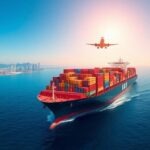

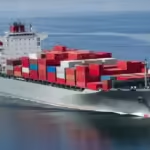
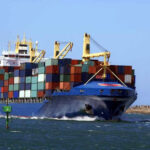
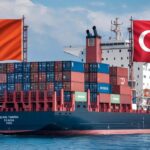
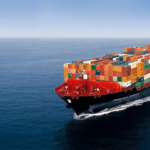



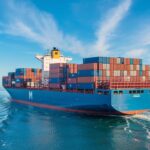
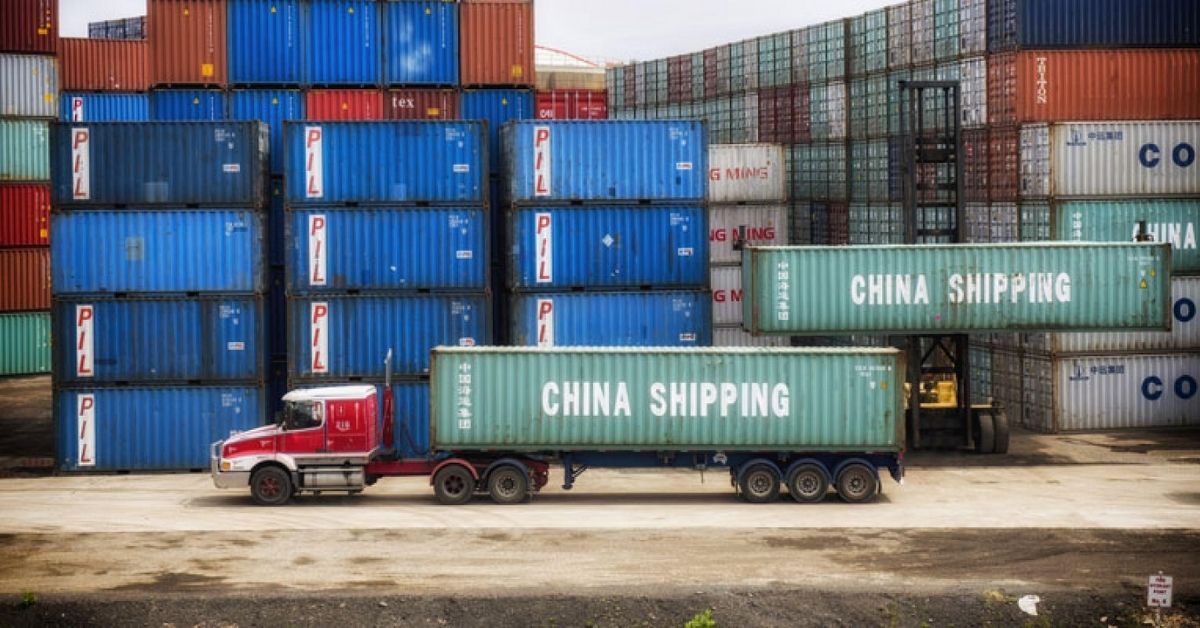
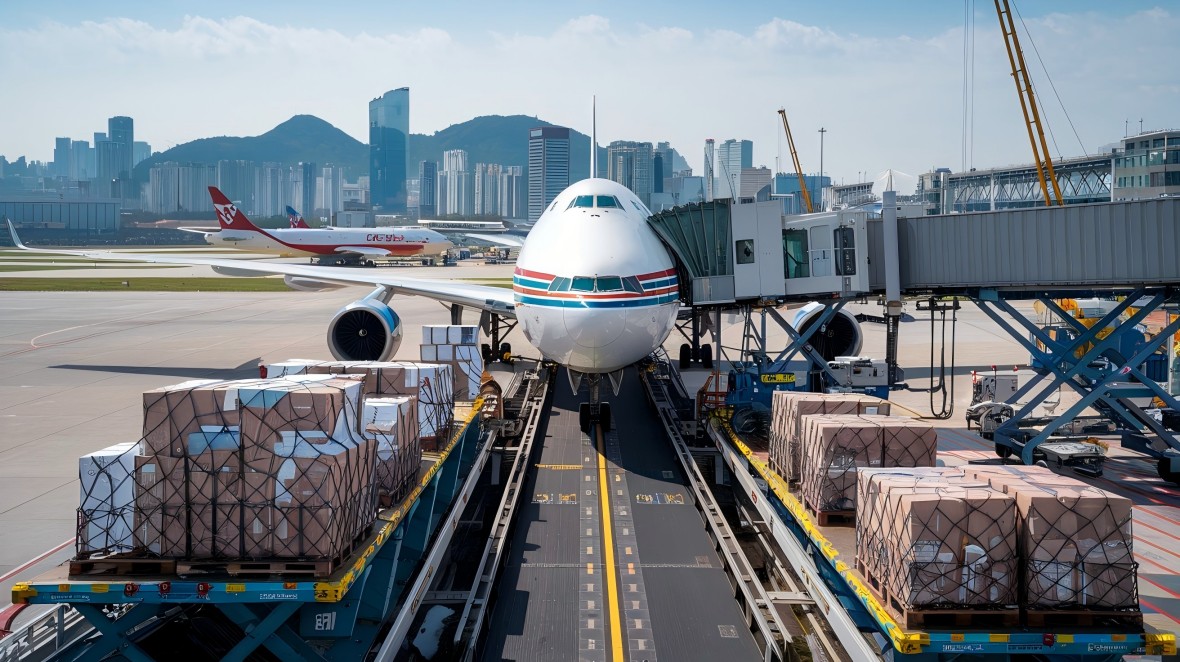
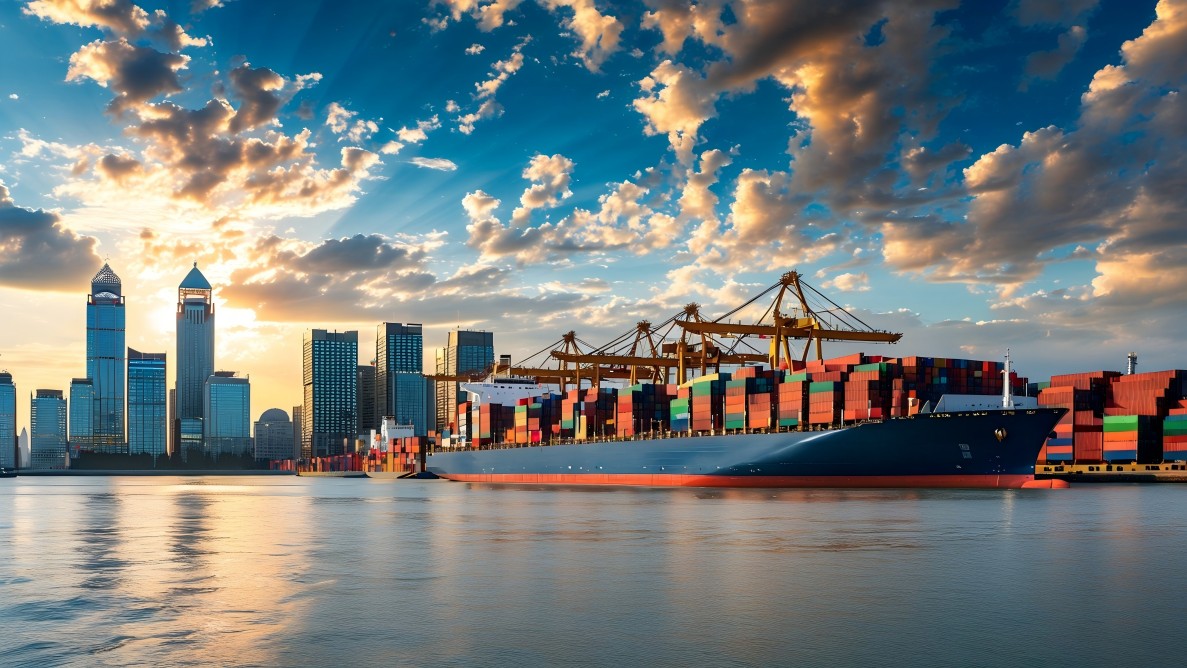
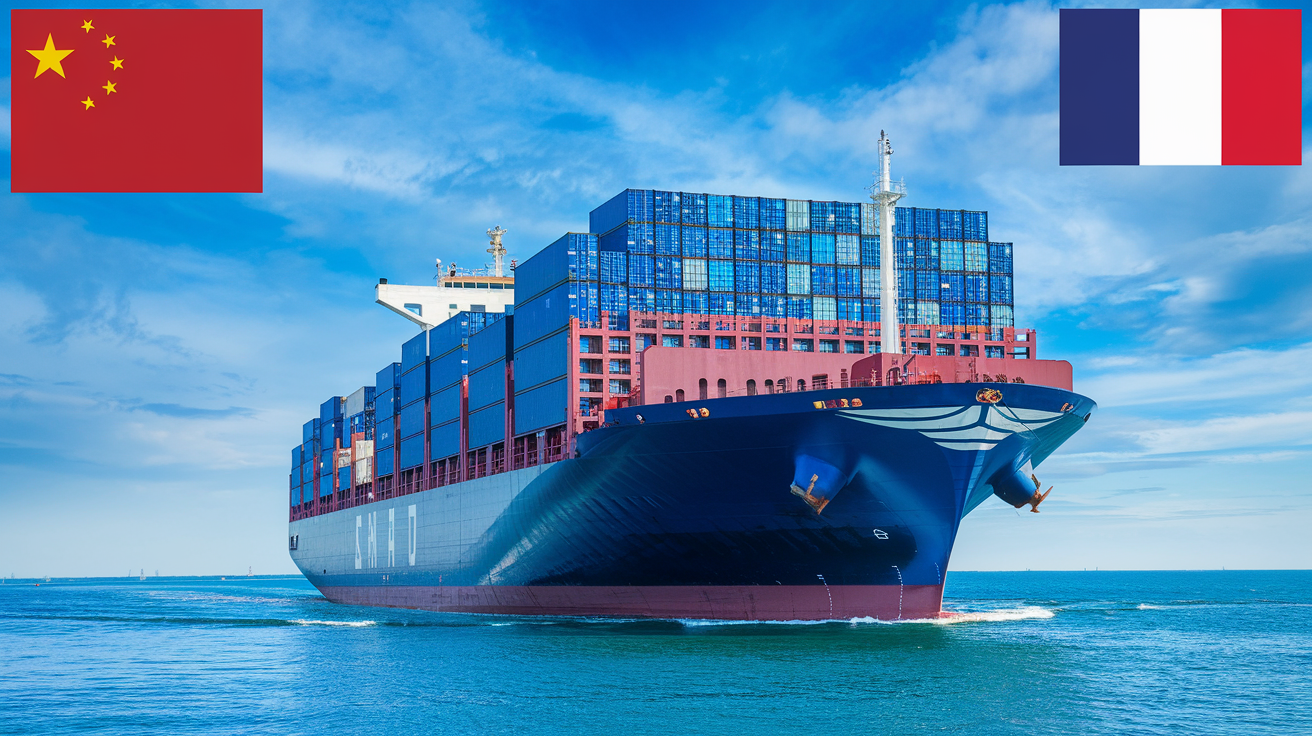
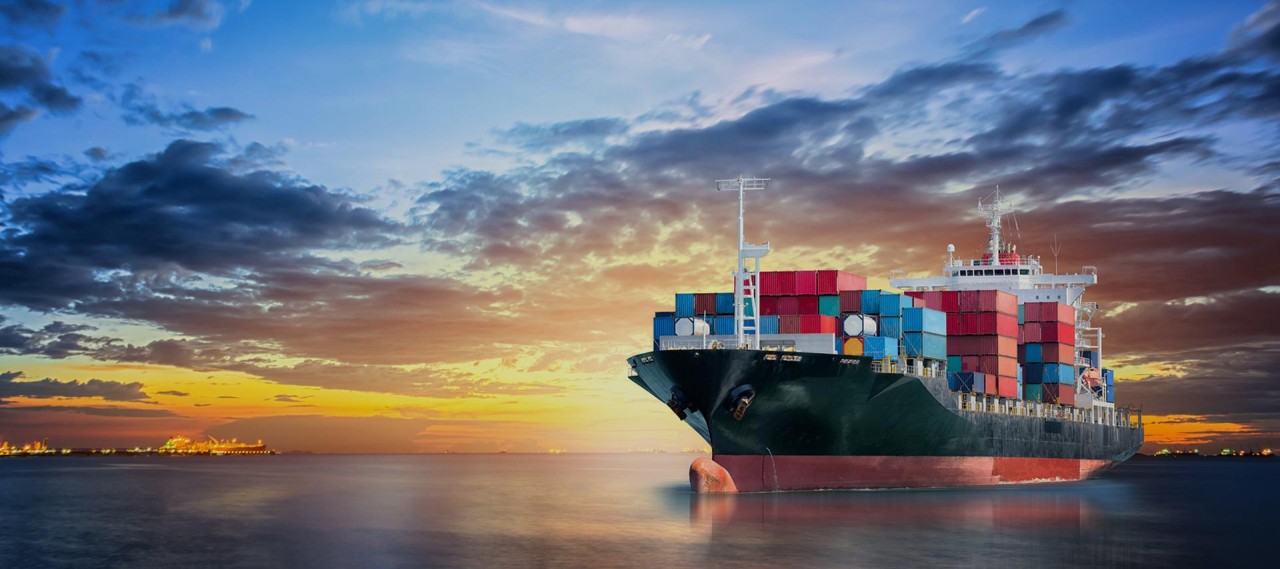





 Afrikaans
Afrikaans Shqip
Shqip አማርኛ
አማርኛ العربية
العربية Հայերեն
Հայերեն Azərbaycan dili
Azərbaycan dili Euskara
Euskara Беларуская мова
Беларуская мова বাংলা
বাংলা Bosanski
Bosanski Български
Български Català
Català Cebuano
Cebuano Chichewa
Chichewa 简体中文
简体中文 繁體中文
繁體中文 Corsu
Corsu Hrvatski
Hrvatski Čeština
Čeština Dansk
Dansk Nederlands
Nederlands English
English Esperanto
Esperanto Eesti
Eesti Filipino
Filipino Suomi
Suomi Français
Français Galego
Galego ქართული
ქართული Deutsch
Deutsch Ελληνικά
Ελληνικά Kreyol ayisyen
Kreyol ayisyen Harshen Hausa
Harshen Hausa Ōlelo Hawaiʻi
Ōlelo Hawaiʻi עִבְרִית
עִבְרִית हिन्दी
हिन्दी Hmong
Hmong Magyar
Magyar Íslenska
Íslenska Igbo
Igbo Bahasa Indonesia
Bahasa Indonesia Gaeilge
Gaeilge Italiano
Italiano 日本語
日本語 Basa Jawa
Basa Jawa ಕನ್ನಡ
ಕನ್ನಡ Қазақ тілі
Қазақ тілі ភាសាខ្មែរ
ភាសាខ្មែរ 한국어
한국어 كوردی
كوردی Кыргызча
Кыргызча ພາສາລາວ
ພາສາລາວ Latin
Latin Latviešu valoda
Latviešu valoda Lietuvių kalba
Lietuvių kalba Lëtzebuergesch
Lëtzebuergesch Македонски јазик
Македонски јазик Malagasy
Malagasy Bahasa Melayu
Bahasa Melayu മലയാളം
മലയാളം Maltese
Maltese Te Reo Māori
Te Reo Māori मराठी
मराठी Монгол
Монгол ဗမာစာ
ဗမာစာ नेपाली
नेपाली Norsk bokmål
Norsk bokmål پښتو
پښتو فارسی
فارسی Polski
Polski Português
Português ਪੰਜਾਬੀ
ਪੰਜਾਬੀ Română
Română Русский
Русский Samoan
Samoan Gàidhlig
Gàidhlig Српски језик
Српски језик Sesotho
Sesotho Shona
Shona سنڌي
سنڌي සිංහල
සිංහල Slovenčina
Slovenčina Slovenščina
Slovenščina Afsoomaali
Afsoomaali Español
Español Basa Sunda
Basa Sunda Kiswahili
Kiswahili Svenska
Svenska Тоҷикӣ
Тоҷикӣ தமிழ்
தமிழ் తెలుగు
తెలుగు ไทย
ไทย Türkçe
Türkçe Українська
Українська اردو
اردو O‘zbekcha
O‘zbekcha Tiếng Việt
Tiếng Việt Cymraeg
Cymraeg יידיש
יידיש Yorùbá
Yorùbá Zulu
Zulu